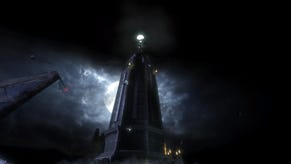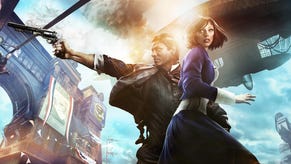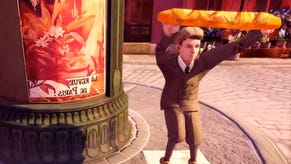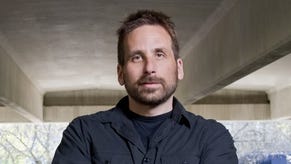Irrational's Ken Levine
To Infinite and beyond.
It's a sultry August night in New York and Ken Levine, president and creative director of Irrational Games, writer and designer of Thief and System Shock 2, creator of BioShock, has just revealed his next game to the press for the first time. BioShock Infinite, which you can read about in detail in our preview, inverts the original's claustrophobic, art deco undersea horror to create a bright, brutal satire on early 1900s America aboard Columbia, a city in the clouds.
In a quiet room amid the very apposite turn-of-the-century splendour of the famous Plaza Hotel on Central Park, Levine - trim, dark, sharp-eyed and fast-talking - has some explaining to do. After he and his studio had distanced themselves from BioShock 2, the canonical sequel to their 2007 smash hit, and reclaimed the Irrational name after a brief spell in corporate brand land as 2K Boston, it was easy to assume they had staked their claim to creative independence and were seeking new ground.
In some ways, though, they still are, with Infinite's ties to BioShock being more conceptual than literal. What makes this a BioShock game, then, and what makes it different?
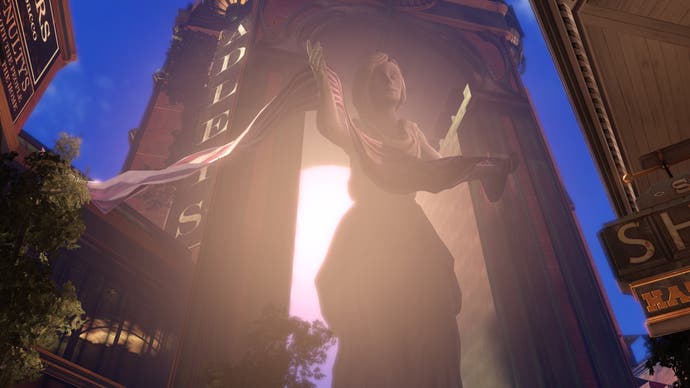
You had to start with a question I can't really answer! There's lots about this world that we're going to be talking about down the road, and I think that if you really look at the demo carefully, you'll start to see there are elements that you don't notice the first time, that raise more questions than they answer, and that maybe speak to the title a little bit.
I couldn't give you a more vague answer, I know, but that's going to become clear with time.
Yes.
I think that's what we wanted to do. We're the guys that created the franchise, but BioShock was an extension of work we had done before in a lot of ways, and this is an extension of work we had done in BioShock.
But I think that it's very much a BioShock game in the sense that it's about a place. It's very important that it's a shooter set in a place where ideas are very important and ideas are the things that drive the action, and there's a notion of history, and you are empowered to go through this world and discover its mysteries and deal with the challenges in a broad range of ways.
To us, that's really what makes a BioShock game; whether it's Rapture or whether it's 1959 or it's the bottom of the sea - those things are far less important to us. Those are the expression of an idea, and the idea for us was always a lot bigger than a particular location.
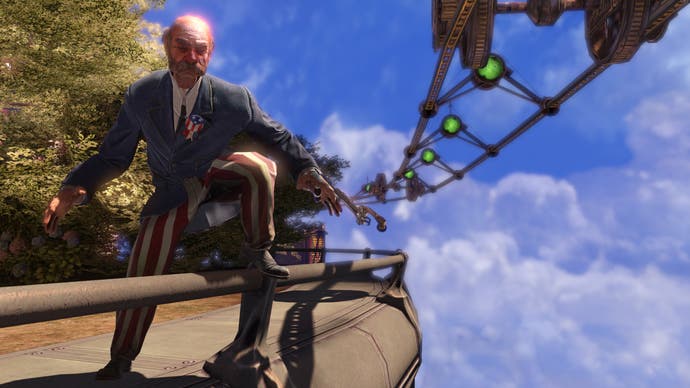
Yes, this is not a secret individual mission, this is the mission of a country that was really coming into its own and wanted to project a series of ideals out into the world in a very powerful way.
It parallels a lot of what happened in history, whether it was the White Fleet or the moon landings. Those were sort of peaceful projections, but they had other overtones to them, in terms of what the country can do, as messages.
We just looked at that period of 1900 which, I don't know about the UK, but it's not a period that people know much about in America. And that attracted us to it, in the same way that BioShock wasn't about World War Two, it was about a period afterwards that people don't know much about.
But we thought it was a really interesting and transformative time of technology waking up: almost all the technology we think of today, electricity, airplanes, cars, mass communications, all those things coming into being in the space of of 20 years. And also America waking up and becoming a player on the world stage and really transforming the world.
I think they're connected. Andrew Ryan reacted to a political context. His philosophy was forged in the Soviet Union.
This philosophy was forged out of a set of ideals about what America is, and what's different here is that people have different ideas about what that is and what a democratic society is. There was a lot of conflict then and there's a lot of conflict now about what the mission of a country might be, and what the country means.





